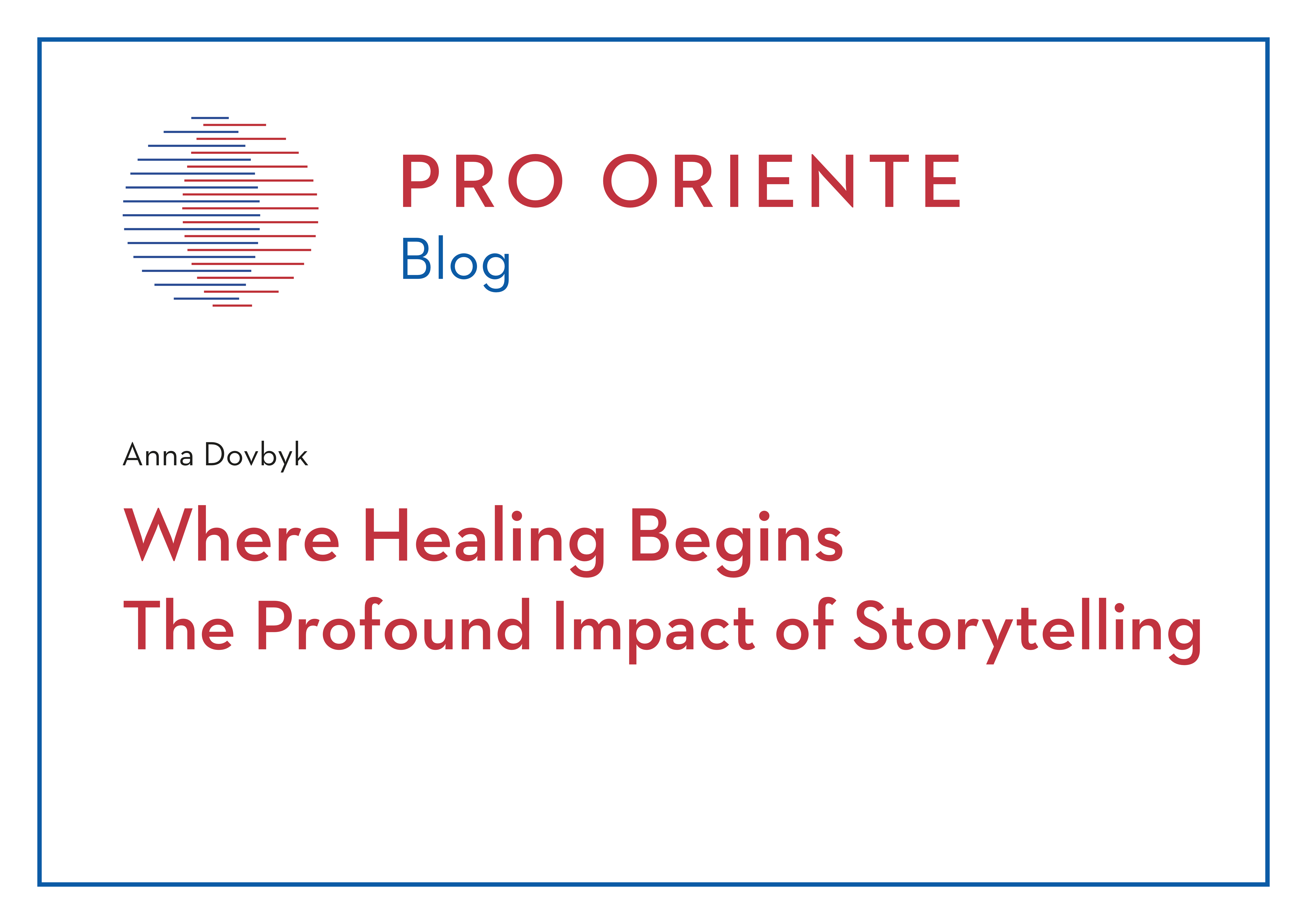Where Healing Beings: The Profound Impact of Storytelling
15. September 2025
Thema: Healing of Wounded Memories

Among many moments in the 'Healing of Wounded Memories' workshop, one left a lasting impression on me: the profound impact of storytelling.
As a practitioner in the field of peacebuilding and conflict transformation, I see storytelling as a powerful tool for helping people connect through our shared humanity.
Working in this field and being personally affected in different ways by the conflicts within Ukraine, I know that true impartiality is difficult – if not impossible – to achieve. I continue to develop awareness of how my own identities, experiences, and emotions inevitably shape how I listen and respond. That awareness doesn’t eliminate bias, but it helps me stay more honest about it.
Hearing Yulia’s story was important. It moved me. Her experience evoked a deep sense of empathy in me – not necessarily because I shared her views or positions, but because I recognized the weight of her experience, her emotions, her struggle.
My perspective on the crisis within the UOC and the tensions between the UOC and the OCU is different. Even though I might be critical of her views, her story helped me connect with her humanity first. And that’s powerful. Listening to Yulia’s personal story allowed me to see her not as someone being on one side in the conflict, but simply as a person seeking ways to deal with injustice and navigate the conflict.
Her story was shared with vulnerability – showing her pain and struggle – and that made me feel more connected to her. While listening, it became harder to think in terms of labels or sides.
For preconceptions to begin to crack open, it helps to see the real faces behind the stories and the real human experiences behind the ideas. And that’s the beauty of storytelling: it invites us to listen with more than just our minds but our hearts – leading to a greater understanding between people.
When someone simply presents information or arguments, we tend to respond analytically. We filter what we hear through our own lenses, asking ourselves: Do I agree or disagree? How do I respond? This is especially true when it is about contexts marked by conflict or trauma. In such moments, our first instinct might be: What is this statement really about? Does this narrative carry any potential danger? Our mental defenses come up almost instinctively.
But storytelling opens more possibilities for us to connect with others. Storytelling engages us on a human level; it invites more respectful listening. We listen not to react but to understand. The story enters us before judgement kicks in. This kind of listening is fuller – it reaches both head and heart – and it allows a deeper exchange to happen.
I see storytelling as an important tool that creates relationships by making us more sensitive to the needs and feelings of others. This, in turn, opens up pathways for connection, acceptance, and the potential for unity.
The workshop "Healing of Wounded Memories" created a space where stories were shared. Our small sharing groups were not spaces for giving advice, but for sharing the rawness of experience: hope, doubt, and struggles. In that kind of space, we don’t just exchange positions; we see one another.
That’s why we need more spaces – safe spaces – where stories can be told, questions asked, and opposite perspectives held, and where people can feel heard, not judged.
Spaces where we share our stories may not solve all our clashes, but they change how we hold them. Maybe that’s where healing begins.



